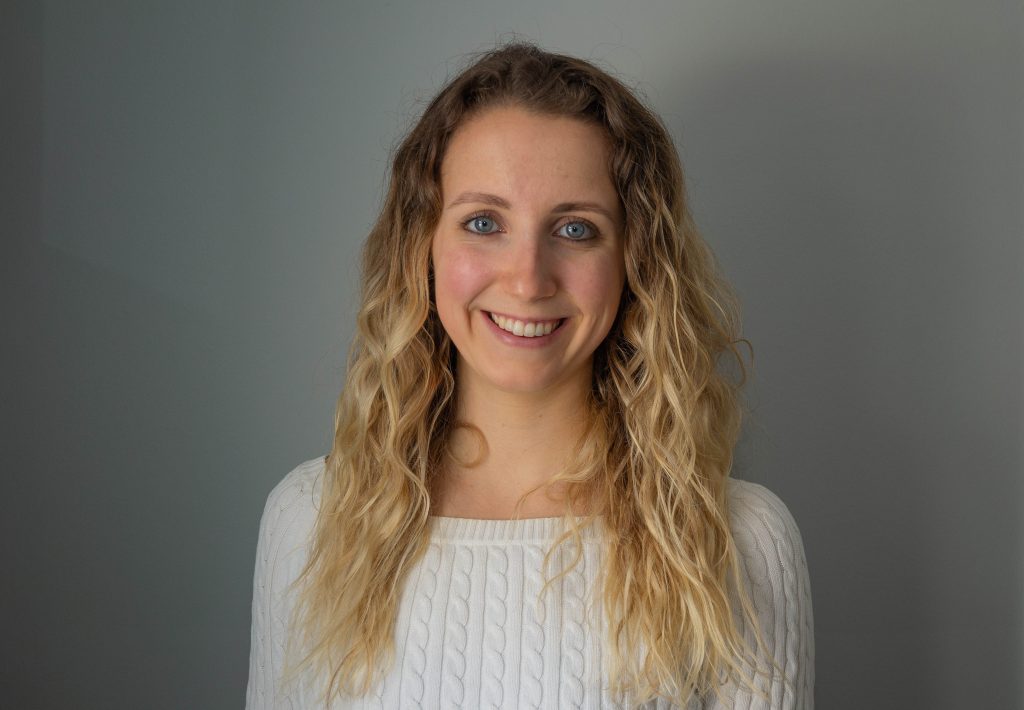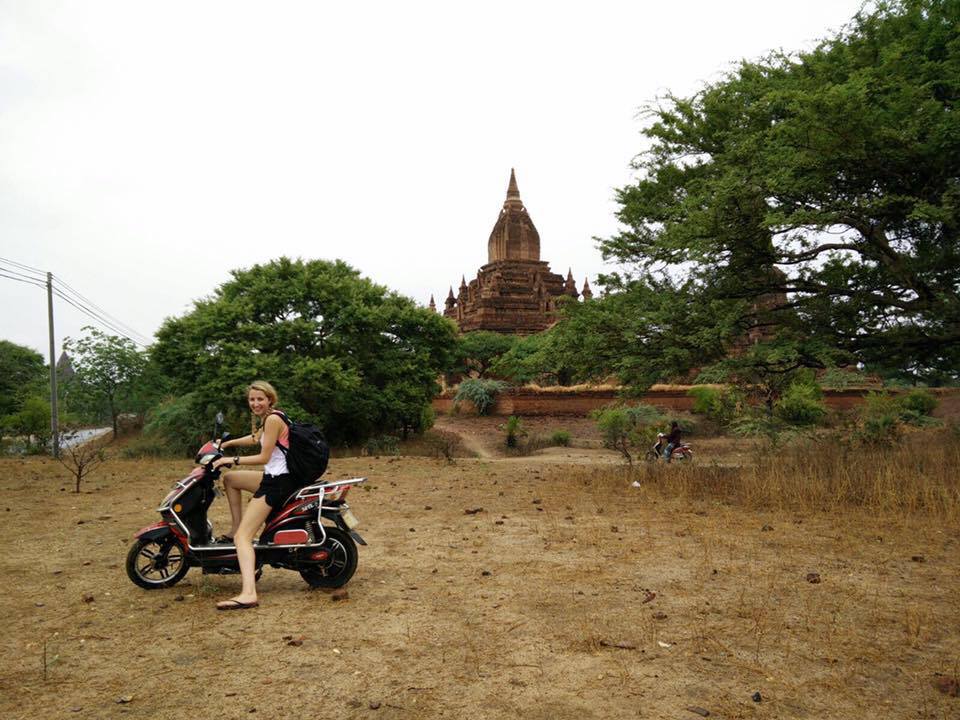
Making the most: one student’s journey through the Munk School
Munk One alumna and University of Toronto graduate Jillian Sprenger (BSc’19) has a multitude of ways to describe herself: a biophysicist, a global researcher, an athlete, a lifelong learner. In 2019, Sprenger completed her undergraduate degree, a major in Global Health and minors in Contemporary Asian Studies and Immunology. Now, she’s working her way through a Master of Science in Biophysics at the University of Toronto. Her journey here has been anything but what she expected, she says. “I’ve always known I wanted to do work with global health and global issues. But I’ve definitely taken a different path than I imagined.” A major part of what shaped that path, according to Sprenger, are the programs and projects she was involved in at the Munk School.
Toronto. Her journey here has been anything but what she expected, she says. “I’ve always known I wanted to do work with global health and global issues. But I’ve definitely taken a different path than I imagined.” A major part of what shaped that path, according to Sprenger, are the programs and projects she was involved in at the Munk School.
Sprenger began her first year of undergraduate studies as a part of the Munk One Program, where she started to explore and shape her interest in global health. “Munk One is where it all really started. It opened doors that I didn’t even know existed. I really credit the program as being the starting point for all of the incredible experiences I had,” she says. Although the program was challenging, Sprenger loved that it allowed students to focus on creating solutions to real-world problems. In the program’s Global Problem-Solving course, she worked with her peers on a year-long project about the absenteeism of doctors in Bangladesh, which she says prepared her to jump into her own independent global health research. In the summer after her first year, Sprenger conducted research on child malnutrition and the application of m-Health technology (the use of mobile and wireless devices to improve health outcomes) in Myanmar. In her second year, she received grants from U of T to research antimicrobial resistance policies in Taiwan.
In 2018, Sprenger was part of a research team with the Reach Alliance at the Munk School, investigating Ethiopia’s Productive Safety Net Program, the most successfully-targeted food aid program in Africa at the time of the team’s research. One of the best parts of Reach, Sprenger says, is that the program is collaborative at its core. “Prior to this, the research I had done was independent,” she says. “It was new and incredibly interesting to work with this larger, multidisciplinary team.” Reach certainly had a hand in expanding her interests into other areas of development, she says. She continued to pursue more broadly development-oriented projects that same year as part of another collaborative project, working with a team from the Munk School and the Department of Latin Studies studying oil extraction policies in the Ecuadorian Amazon.
“All of the things I’ve been able to do were a direct result of the opportunities the school has for students. I’ve never heard of opportunities like that for undergrads anywhere else."
Sprenger took her interest in environmental issues further when she and her brother partnered to participate in the Asian Institute’s Richard Charles Lee Insights Through Asia Challenge, travelling to Sri Lanka to create ‘Road to Colombo,’ a documentary film about climate migrants in the country. “The reason we chose to do a film was because of something I was realizing throughout my undergrad— insights in research tend to get lost in these long  reports. We chose a visual format as a way to appeal to people and draw attention to the issue in an engaging way,” she says. For her, the highlight of the project was the opportunity to speak directly with climate migrants (through a translator) and hear their stories. “When you’re doing research, very rarely do you have the opportunity to interact with the people who are directly affected by the issue you’re researching.” Being able to have this kind of direct connection to an issue, she says, gave the work more depth and significance, both for her personally and for the stories the film tells.
reports. We chose a visual format as a way to appeal to people and draw attention to the issue in an engaging way,” she says. For her, the highlight of the project was the opportunity to speak directly with climate migrants (through a translator) and hear their stories. “When you’re doing research, very rarely do you have the opportunity to interact with the people who are directly affected by the issue you’re researching.” Being able to have this kind of direct connection to an issue, she says, gave the work more depth and significance, both for her personally and for the stories the film tells.
If that sounds like the makings of a jam-packed schedule, it’s only the beginning. For the first half of her undergraduate studies, Sprenger was also a member of the University’s Track and Field and Varsity Cross Country teams. Now, she’s a part of U of T’s Triathlon club, and qualified last summer to compete at the World Triathlon Championships as a part of Team Canada. How does she handle it all? “Luckily, I’m a morning person,” she says. “And I’ve played sports since I was 9, so I’ve had a lifetime of practice balancing that with school. Even though it can get stressful, when you love something that much, it doesn’t really feel like extra work.”
Honing her appetite for hands-on work through projects like the Insights Through Asia Challenge is one thing that has taken Sprenger to unexpected places. After finishing her Master’s, she’s thinking about pursuing further graduate studies or going to law school to focus on international law and environmental issues. “It looks like kind of a detour,” she says, “but it’s a really tangible way to come back to working on global issues that I realized I really care about. I want to get directly involved, and studying the legal aspects of these issues is one way to do that.”
Reflecting on her undergraduate journey, Sprenger says that while the things she’s passionate about have remained consistent, the way that she approaches those things has changed, thanks to the projects and work that she completed throughout her degree. “My interests have always been very much related to global issues, but my awareness of the different ways that there are to address some of these issues has been totally altered by the experiences that I had,” she says.
One of the best parts of her journey has been support from the Munk School community, Sprenger says. “All of the things I’ve been able to do were a direct result of the opportunities the school has for students. I’ve never heard of opportunities like that for undergrads anywhere else. That kind of support, believing in students enough to be willing to invest so much in them, is just invaluable.”
Editor’s note: In April 2021, the University of Cambridge named Jillian Sprenger a Gates Cambridge Scholar-Elect.

